Vietnam's Fisheries Industry Faces New EU Regulations in 2025
The European Union (EU) remains a crucial market for Vietnam's key seafood exports, such as shrimp, pangasius, and tuna. However, beginning in 2025, the EU will introduce new environmental regulations for the fisheries industry, demanding exporters comply with more stringent quality and sustainability standards. These measures pose challenges but also provide opportunities to improve product quality and strengthen the reputation of Vietnamese seafood in the international market.
Overview of the EU's New Environmental Regulations for the Fisheries Sector
The European Union (EU) is introducing new regulations to protect the environment in seafood production, addressing challenges such as climate change and biodiversity loss. These regulations require seafood exporters to meet stringent standards for sustainability certification, product quality, and environmental impact. The EU places particular emphasis on reducing the use of chemicals and antibiotics in aquaculture while protecting endangered aquatic species.
Sustainability certifications, such as the Aquaculture Stewardship Council (ASC) and the Marine Stewardship Council (MSC), will become mandatory for seafood products exported to the EU. This shift aims to drive the fisheries sector toward sustainable production models, minimizing environmental harm.
Additionally, the regulations call for improvements in farming practices, the protection of marine ecosystems, and the conservation of fishery resources. These measures are designed to ensure that seafood production does not harm wildlife or natural habitats.
Opportunities and Challenges for Vietnam's Fisheries Sector as the EU Implements New Regulations
Opportunities
The EU's environmental regulations present significant opportunities for Vietnam's fisheries sector to improve product quality and sustainability. Compliance with EU standards not only enhances the export value of Vietnamese seafood but also boosts its reputation in the international market.
Sustainability certifications such as the Marine Stewardship Council (MSC) and Aquaculture Stewardship Council (ASC) offer a competitive advantage, especially as EU consumers increasingly prioritize seafood with transparent origins and eco-friendly credentials. By adopting these standards, Vietnamese exporters can strengthen their market presence and meet growing global demand for sustainable products.
To export internationally, Vietnamese seafood must comply with the EU's stringent environmental requirements.
In particular, improving production processes to meet these environmental standards will drive sustainable growth in the industry. Businesses can adopt new technologies to minimize negative environmental impacts while enhancing productivity and product quality. This approach not only helps attract customers but also increases the export value of Vietnamese seafood products, strengthening the industry's global competitiveness.
Challenges
The EU's environmental regulations pose significant challenges for Vietnam's fisheries sector, particularly regarding costs and the need to improve production processes. To meet sustainability standards, businesses must invest in green technologies and upgrade their operations, which requires substantial financial resources.
Additionally, transitioning to sustainable production models and changing long-standing practices represent a major hurdle, especially for small and medium-sized enterprises (SMEs). These businesses often face difficulties in accessing the capital needed to modernize technology and obtain sustainability certifications.
Enterprises lacking adequate capacity face intense pressure to comply with standards for protecting aquatic species and minimizing ecological impacts. Failure to meet these requirements could jeopardize their ability to export to the EU market
Video


